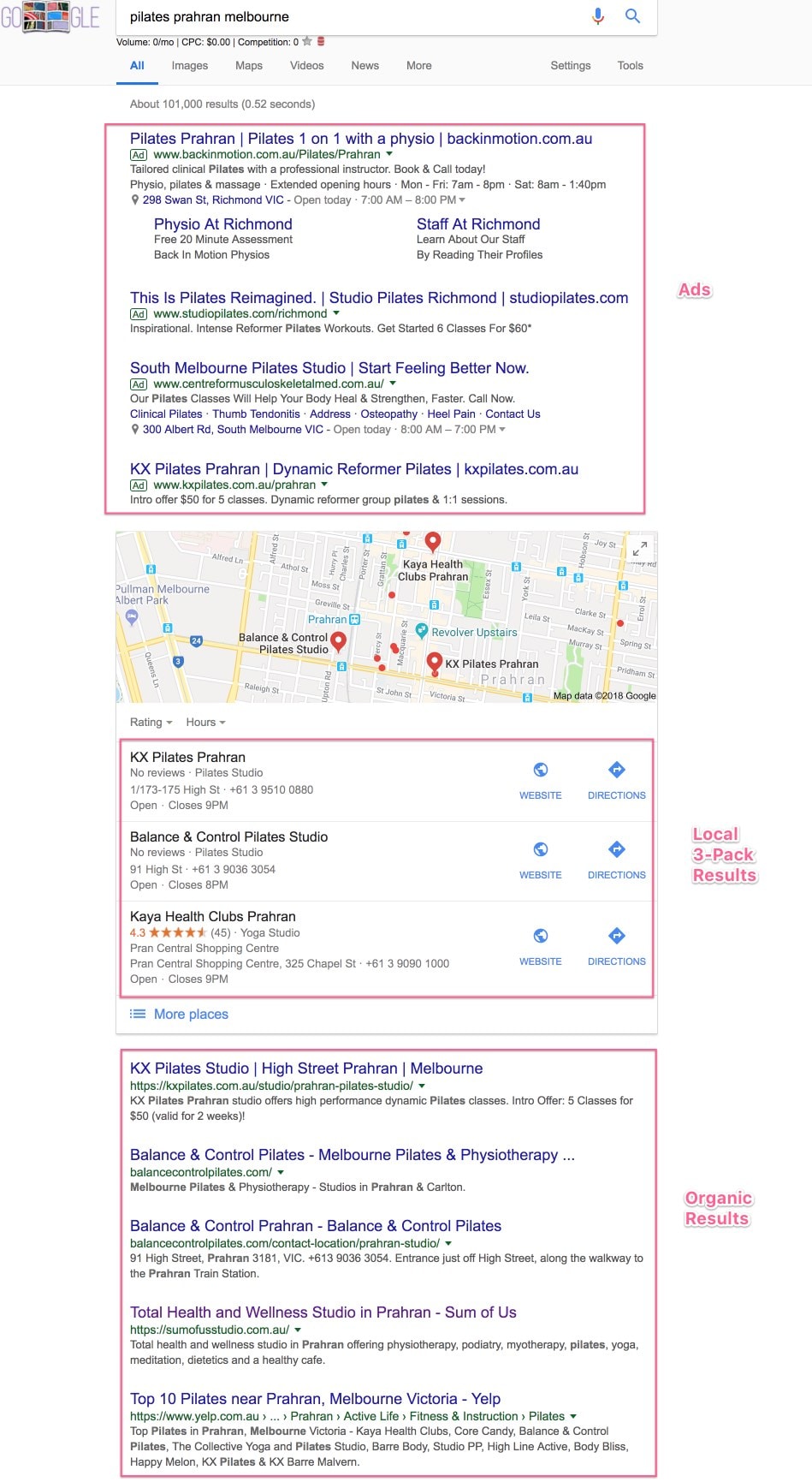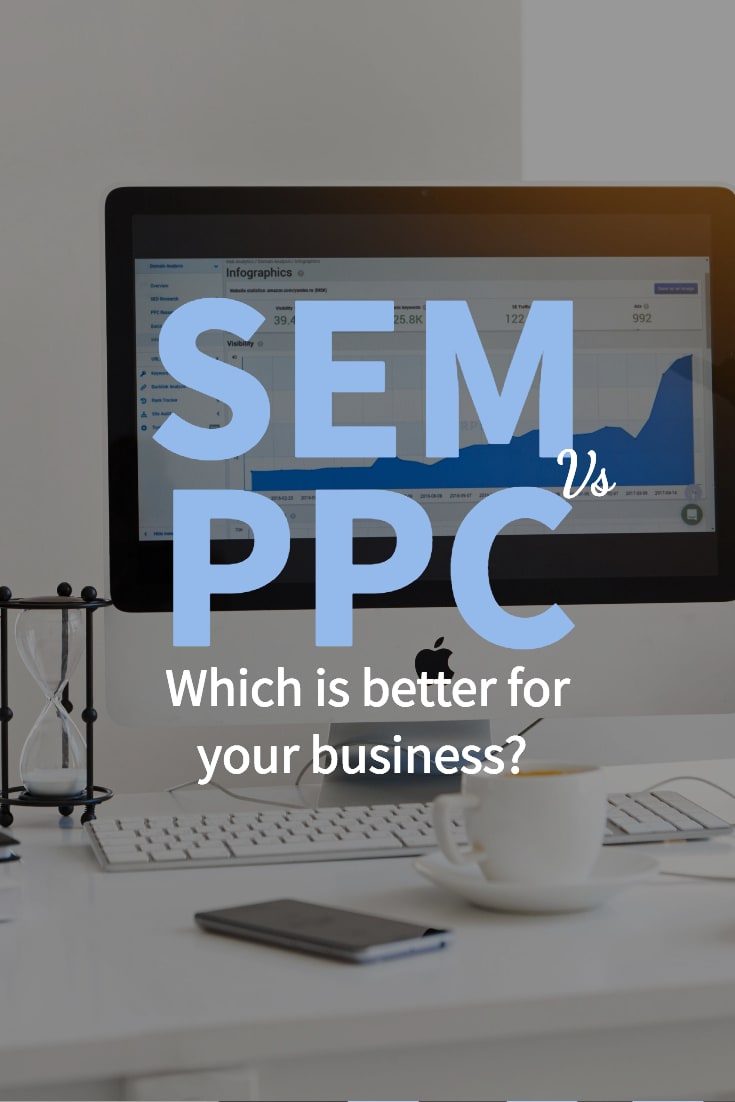The SEO (Search Engine Marketing) vs PPC (Pay Per Click) debate changes with every new Google update. But what about SEM? Isn't that the same as SEO? Well, sort of. And which one is cheaper, faster, and easier? That depends on your needs. All will be explained below.
Here's the quick answer to the question of which marketing strategy is best: It depends on your business's goals, budget, and ultimately finding out which one generates the highest return on investment. Paid search ads from networks like Google, Facebook, and Instagram (PPC) and Search Engine Optimization (SEO) or organic Search Engine Marketing (SEM) can have a place in the marketing plan of every business.
The best marketing solution depends on your needs. Let's take a look at how you can figure out which works best for your business.
What is SEO/SEM?
SEO stands for Search Engine Optimization. It's sometimes called SEM. But we can call SEM the top category and SEO the subcategory. At least, that's how I define it. SEO and SEM are treated differently by SEMrush. Backlinko's Brian Dean considers them to be in the same category, with SEM being the parent term that includes SEO. WordStream suggests that SEM is paid search marketing and SEO is organic search marketing.
Who's right? Well, it doesn't really matter. As long as you can find the right tools as a business owner to reach potential customers, you shouldn't need to worry about definitions.
SEO is easier to define. It is a marketing strategy that involves designing a website to make it rank higher in Google's organic search results. An example of an SEO task is keyword research. Keywords are search queries (phrases) that people type into search engines. By optimizing a website to rank higher in Google for a given search query or keyword, you are performing SEO on that site. Let's say you own a web design services company. You might attempt to optimize certain pages on your site for keywords such as “web design London” or “best website design for fitness professionals”. This can help drive organic traffic to your site, improve conversion rates, and help you sell your web design services.
What is PPC?
Google Ads refers to Google's advertising platform and the actual search ads people see on the search engine results and display ads on partner websites. It runs as an auction system whereby advertisers can bid on keywords and run ads to target people who search for these keywords.
Google's Ad platform is a form of Pay-Per-Click advertising (PPC). This form of advertising is called Pay Per Click because the advertiser only pays when someone clicks on their ad. Other kinds of PPC include display ads, Amazon Ads (PPC ads for Kindle Publishing and FBA), Videos Ads, and Gmail Ads.
Personally, I very rarely click the paid search ads. But I'm in the minority these days. Most people can't tell the difference between an ad listing and an organic listing on the search engine results page (SERP).

According to Wordstream, the number one spot on Google's organic results has devalued by over 30% in two years. And this highlights a trend in how people find answers on Google. More and more people click on ads for answers. And, we can assume that over half of these people have no idea they are clicking on ads.
Whether you like the fact that Google is turning into a marketplace rather than a search engine, ads are here to stay. If you want to get noticed and have people click through to your website, you will need to pay to play in most cases.
Organic traffic to websites is losing ground to Ad clicks on Google. This is especially true for mobile and for local SEO results. If you take a look at the SERP for a local SEO keyword, you'll see 4 ads, map results, followed by the 3-pack, and finally the organic listings.
To get to the organic results people need to scroll past the first screen. Your SEO strategy should take into account the lower Click Through Rate (CTR) for organic search these days.
Why Ads Don't Always Work
Let's imagine you have a product that nobody has ever heard of in a space that's completely new. Now think about how people might search for that on Google. See the problem? Nobody is searching for your product and, quite possibly, nobody is searching for the solution your product offers. So it would be difficult and potentially very expensive to run PPC campaigns for this product or service.
Google Ads are great for targeting buyer intent keywords like “buy kombucha online”, “yoga studio Auckland prices”, and “where to buy bitcoin”. People already know what they want. You have the solution. You just need to match the buyer intent with the ads, keywords, landing pages, and offers.
And this is one of the main differences between SEO and PPC ads. SEO is often more about education and nurturing. PPC is more about capturing people's attention when they are ready to buy.
If nobody is looking for your product or service, PPC advertising might not be the best choice. Of course, there are plenty of exceptions. If you can target customers with a specific need or pain point with your ads, then, by all means, use search and display advertising.
If you have a new product in an established genre you can definitely target these people. Let's say your service is a new type of exercise regime that is big in the US but nobody has heard of it yet in the UK. Your target market is the UK so what can you do? You find out from Keyword Planner or any keyword tool that the search volume for this new craze is a big fat zero. But it's an exercise craze, so focusing on keywords like ‘exercise classes near me', ‘aerobic dance classes near me', ‘best exercise for weight loss', and ‘best way to get back in shape' might work in your PPC campaign.
When SEO Doesn't Work
Some niches are saturated with content and authority websites. The digital marketing niche is notoriously difficult for SEO and SEM, for obvious reasons. The fishing, health & fitness, and dentistry niches, for example, are much easier. The people and companies building businesses in these niches are usually not digital marketing experts.
Unless you have very deep pockets or years to spend creating content and optimizing websites, difficult head keywords like ‘New York travel' are best avoided. But you can still bid on that keyword in the ad auctions.
PPC Pros and Cons
| Pros | Cons |
|---|---|
| Gets results faster than SEO | In some industries, PPC ads are very expensive. Content marketing, technical SEO, and link building offer a better ROI. |
| Highly targeted ads get a high click-through rate (CTR) | Requires skilled management and copywriting skills to be effective. |
| Costs can be low if managed correctly |
SEO Pros and Cons
| Pros | Cons |
|---|---|
| SEO is great for branding and increasing your website's authority online. | Resource intensive |
| The ROI on SEO is higher in the long term than PPC if performed correctly. | Results take a long time to manifest. |
| Exact results are not always measurable and there's a long lag between testing and analysis |
Alternative to Google Ads PPC
Google ads is a fantastic way to advertise, but it isn't suitable for every industry, product, and service. In particular, unknown services, courses, products, and new concepts are sometimes better served with Facebook Ads. The advantage Facebook Ads have is that you can literally force your ads to appear in front of people. The disadvantage is that people are usually not on Facebook to buy stuff. By placing ads in their feed or sidebar, you interrupt their browsing rather than answer a question.
Other PPC Ads alternatives include Bing Ads, Facebook Ads, Pinterest Ads, Quora Ads, Amazon PPC, and Reddit Ads.
Alternatives to SEO
- Referral traffic through guest posting and backlink building
- Social Media – Facebook, Pinterest, Twitter, TikTok, Instagram, Snap, and Linkedin, among others.
- Email marketing – businesses with large email lists can drive a lot of traffic to their websites and other offers.
- Influencer marketing on Instagram and TikTok.
Which to Choose, SEO or PPC?
You can either do the research yourself using keyword tools or you can hire a digital marketing expert. Marketers will help you figure out the best strategy. Anyone that recommends blanket coverage of all channels (content marketing, PPC advertising, Social, etc) is not to be trusted.
Testing channels is a great idea but focusing on what works is a much better idea. Proper planning, testing, and analysis will help you determine whether SEO or PPC is right for you.
Combining SEO and PPC is a good strategy. In that way, you can drive free organic traffic to save on ad costs and you will still have a working traffic channel if your site ever loses rankings.
- Use data collected from PPC Ads (search terms, best target audience, quality score) to power your SEO campaigns.
- Use SEO to drive organic traffic to your website and use PPC advertising to retarget these visitors with retargeting campaigns.
- Split your marketing into low-cost PPC keywords and high-cost SEO keywords.


Comments are closed.